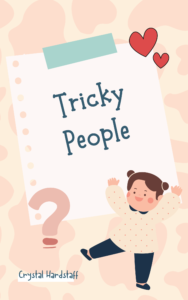Empowering Future Generations
Consent is an essential concept that transcends the realm of sexual relationships. It is a fundamental aspect of respect, autonomy, and personal boundaries. Teaching children about consent is crucial for their social and emotional development, as well as for fostering healthier relationships in the future. In this blog post, we will explore the importance of teaching kids about consent at different developmental milestones and the broader implications of this critical life skill.
Early Childhood (Ages 2-6):
In early childhood, children are learning the basics of communication and social interaction. Teaching them about consent involves helping them understand that their bodies are their own, and that they have the right to say no when they feel uncomfortable.
- Boundaries for Hugs: Encourage children to ask for consent when hugging or touching others. Teach them that it's okay to say "stop" if they don't want to be tickled or touched. This early lesson empowers them to set and respect boundaries.
- Teach them to ask for consent when hugging or touching others.
- Encourage them to say "stop" if they don't want to be tickled or touched.
- Use simple language to explain that nobody should do anything to their bodies that they don't want.
The Bigger Picture: Early lessons in consent empower children to set and respect boundaries, which is crucial for building respectful and empathetic relationships.
Middle Childhood (Ages 7-12):
As children grow, they start interacting with peers more independently. They need to grasp the concept of consent not only in physical situations but also in social and emotional contexts.
- Consent in Games: Discuss consent in games and activities. Ensure they ask before borrowing or using someone else's belongings. Teach them to respect their friends' personal space and feelings.
- Discuss consent in games and activities. Ensure they ask before borrowing or using someone else's belongings.
- Teach them to respect their friends' personal space and feelings.
- Explain the importance of consent when sharing personal information or secrets.
The Bigger Picture: Learning consent at this age sets the foundation for respecting the privacy, feelings, and belongings of others.
Adolescence (Ages 13-18):
During adolescence, discussions about consent should extend to romantic and intimate contexts. Consent in this context is not just about saying "yes" or "no" but understanding that it can be withdrawn at any time.
- Mutual Consent: Emphasise the importance of mutual, enthusiastic consent in intimate relationships. Teach the difference between consensual sex and coercion, and discuss the role of alcohol and drugs in consent.
- Emphasise the importance of mutual, enthusiastic consent in intimate relationships.
- Teach the difference between consensual sex and coercion.
- Discuss the role of alcohol and drugs in consent, highlighting that impaired judgment negates consent.
The Bigger Picture: Teaching consent in adolescence contributes to healthy sexual relationships, reduces the risk of sexual assault, and promotes respectful communication.
Adulthood and Beyond:
The importance of consent doesn't diminish as individuals become adults; in fact, it becomes more nuanced. Consent remains relevant in personal, professional, and societal interactions.
- Healthcare Consent: In healthcare, ensure patients are informed and agree to medical procedures.
- Workplace Boundaries: In the workplace, respect each other's boundaries and ask for consent when necessary.
- Societal Consent: Consent extends to wider societal contexts, including political decisions, data privacy, and personal information.
The Bigger Picture: An understanding of consent is vital for a just and equitable society, where people respect each other's autonomy, make informed decisions, and participate in a democratic process.
Conclusion:
Consent is not just a conversation about sex; it's a fundamental life skill that should be taught from an early age. By teaching children about consent at different developmental milestones, we prepare them to navigate social, emotional, and intimate relationships with respect, empathy, and understanding. Beyond its immediate implications, consent plays a pivotal role in fostering a just and equitable society where personal autonomy is honored, and boundaries are respected.
Final Message:
Please engage with this content and help raise awareness. We are committed to empowering future generations with the knowledge of consent.
Remember, to change the world, it starts with us.
The harsh reality is that 1 in 3 girls and 1 in 7 boys will experience some form of sexual assault by the time they are 16. If you are against teaching kids about consent, you're inadvertently perpetuating these horrifying statistics. We can't simply 'let kids be kids' in a world that can harm them in secrecy."
References:
Specific numbers may vary by region, country, or source. Reputable sources provide data such as:
- National Sexual Violence Resource Center (NSVRC) - Reference for sexual assault statistics
- Australian Child Maltreatment Study (ACMS) - Reference for sexual assault statistics

"Tricky People" by Crystal Hardstaff
A children's book for parents and caregivers to read to their children about consent, body autonomy, what is and is not ok, the warning signs, who are safe people, and how to listen to their instincts when something or someone doesn't feel right. Stranger Danger is an old and outdated concept, and using the language of Tricky People helps empower and protect children.